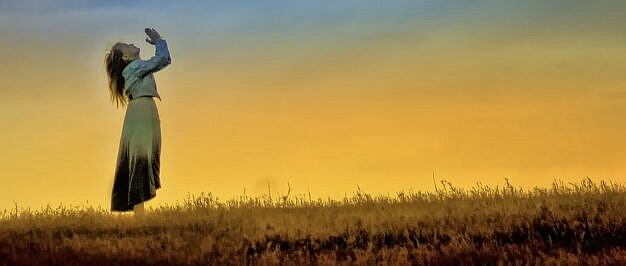In 1848, a Shaker elder named Joseph Brackett wrote an easy-to-learn-and-sing tune for his community called “Simple Gifts.” We all know it today because it has made its way into American (and Irish) culture, interpreted and recorded often by folksingers, church and school choirs, and even symphony orchestras. It evolved to become the Christian folk song, “The Lord of the Dance.” The composer Aaron Copland incorporated its melody into his masterpiece, “Appalachian Spring.” The hit Irish dance review, “The Lord …
Category: Songwriters
It’s easy to lose hope, and perhaps it’s even easier to place our hope in the wrong things and people. I’m not here to tell you what’s right and what’s wrong. But since the theme of this blog has always been — broadly defined — about the intersection of God in our lives, I would like to make a few observations today and then leave you with a song and prayer of hope written by one of my very close …
When Fr. Jan Michael Joncas composed the song “On Eagle’s Wings” four decades ago, he was trying to comfort a friend whose father had just died of a heart attack. He wrote the song on guitar in the days following the death and then performed it at the funeral, and that might have been the end of the story. But God, Fr. Joncas said in a recent interview, had other plans. …
Almost a year ago (March 31, 2018) I posted a reflection about “waiting” during Holy Week, and that post included a new song I composed and performed with my to musical partners, John Caravelli and Phil Cooper. A year later, we now have a video to go with the song, so I thought I would post it here. Sit with it, pray with it, let it be a reminder that God is present throughout all of our days and nights… …
Thanks to you all for reading and responding this past year. Here's a little Christmas greeting for you that asks the important question: What is Christmas to you? Christmas to me, echoes the mystery The sacred holy night A grace so pure and bright. …
I am pleased to announce that my American roots music band, the Mo Bottom Project, will release our long-anticipated first CD this October. …
When we give ourselves some time and some promptings to remember, we can recall images and stories, and stories and images can change lives, can turn people toward God who waits for our turning. For most of us, these stories and pictures speak louder than proclamations. …
rowing a garden is an act of faith and an acknowledgement of gratitude. It is a gesture of creativity and hope — that what we begin and nurture “with a rake and hoe” can become something else, something bigger and more, something that can be shared around a table. …
As we near Christmas, we recall both the woundedness of our lives and the joy of the birth of the Christ, who came to bind up our wounds, heal our brokenness and fill the empty spaces in our lives. …
No blue sky today, I thought. But then I looked, perhaps for the first time that day, at the green. The green of the grass and the trees exploded into my vision and I was taken aback by the utter beauty and contrast of the wet green against the coldness of the rest of the landscape. I woke up, it seems. It’s not drab, I thought, it’s just God telling me to remember that beauty lies all around us, all …

